Description
Chia seeds, scientifically known as Salvia hispanica, are small, nutrient-dense seeds derived from the chia plant, a member of the mint family native to Central and South America. These tiny seeds have gained popularity for their exceptional nutritional profile and versatile culinary applications.
Key Features of Chia Seeds:
1. Nutrient-Rich Superfood:
– Chia seeds are a nutritional powerhouse, packed with essential nutrients such as omega-3 fatty acids, fiber, protein, vitamins, and minerals.
2. High Fiber Content:
– Chia seeds are an excellent source of dietary fiber, promoting digestive health, and contributing to a feeling of fullness when consumed.
3. Omega-3 Fatty Acids:
– These seeds are one of the richest plant-based sources of alpha-linolenic acid (ALA), a type of omega-3 fatty acid that supports heart health.
4. Protein Source:
– Despite their small size, chia seeds contain a notable amount of protein, making them a valuable addition to vegetarian and vegan diets.
5. Antioxidant Properties:
– Chia seeds boast antioxidant compounds that help neutralize free radicals in the body, potentially contributing to overall health.
6. Hydration and Gel Formation:
– When mixed with liquid, chia seeds form a gel-like consistency, which can be used in various recipes and beverages. This gel formation also aids in hydration.
7. Versatile Culinary Use:
– Chia seeds have a mild, nutty flavor and can be easily incorporated into a variety of dishes, including smoothies, puddings, yogurt, salads, and baked goods.
8. Gluten-Free:
– Chia seeds are naturally gluten-free, making them a suitable ingredient for individuals with gluten sensitivities or those following a gluten-free diet.
9. Energy Boost:
– The combination of protein, fiber, and healthy fats in chia seeds provides sustained energy, making them a popular choice among athletes and those seeking long-lasting fuel.
10. Weight Management:
– Due to their fiber content, chia seeds may contribute to weight management by promoting a feeling of fullness and aiding in portion control.
11. Blood Sugar Regulation:
– Some studies suggest that chia seeds may help regulate blood sugar levels, making them potentially beneficial for individuals with diabetes.
12. Bone Health:
– Chia seeds contain essential minerals such as calcium, phosphorus, and magnesium, contributing to bone health.
13. Easy to Incorporate:
– Chia seeds can be sprinkled on cereals, added to smoothies, used as an egg substitute in baking, or mixed into yogurt, providing a convenient way to enhance the nutritional content of various meals.
Chia seeds are celebrated not only for their nutritional density but also for their versatility in the kitchen, making them a popular choice for health-conscious individuals seeking a nutrient-rich addition to their diet.
Chia seeds are tiny black or white seeds that come from the plant Salvia hispanica, which is related to the mint family. Here are some key points about chia seeds:
– Nutrient-Dense: Despite their small size, chia seeds are packed with nutrients. They are an excellent source of fiber, protein, omega-3 fatty acids, antioxidants, vitamins, and minerals.
– Digestive Health: Chia seeds are high in dietary fiber, which can help promote regular bowel movements, prevent constipation, and support overall digestive health.
– Heart Health: Chia seeds contain omega-3 fatty acids, which are beneficial for heart health. They may help reduce inflammation, lower LDL (bad) cholesterol levels, and improve heart health.
– Blood Sugar Control: Chia seeds have a low glycemic index, which means they have a minimal impact on blood sugar levels. They may help stabilize blood sugar levels and reduce the risk of type 2 diabetes.
– Energy Boost: Chia seeds are rich in carbohydrates and provide a sustainable source of energy. They can help improve endurance and performance during physical activities.
– Weight Management: Despite being calorie-dense, chia seeds can be part of a weight management plan. Their high fiber and protein content help promote satiety and control appetite.
– Hydration: Chia seeds can absorb water and swell up to form a gel-like consistency. Consuming hydrated chia seeds can help maintain hydration levels and prevent dehydration.
– Versatility: Chia seeds have a mild flavor and can be easily incorporated into a variety of dishes and recipes. They can be sprinkled on top of yogurt or oatmeal, added to smoothies, used as a thickening agent in soups and sauces, or used to make chia pudding.
Incorporating chia seeds into your diet can provide numerous health benefits and support overall well-being.


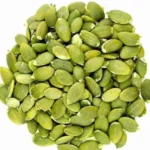
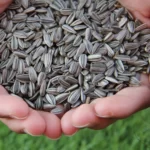


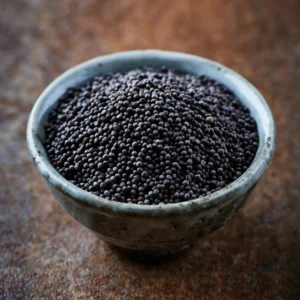
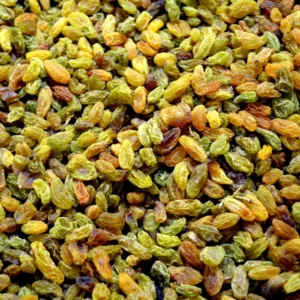
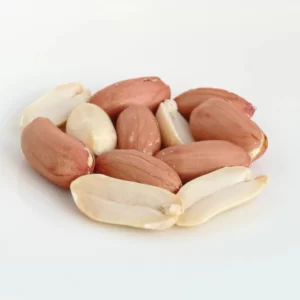
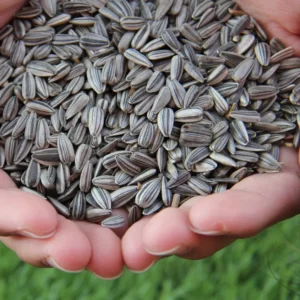
Reviews
There are no reviews yet.